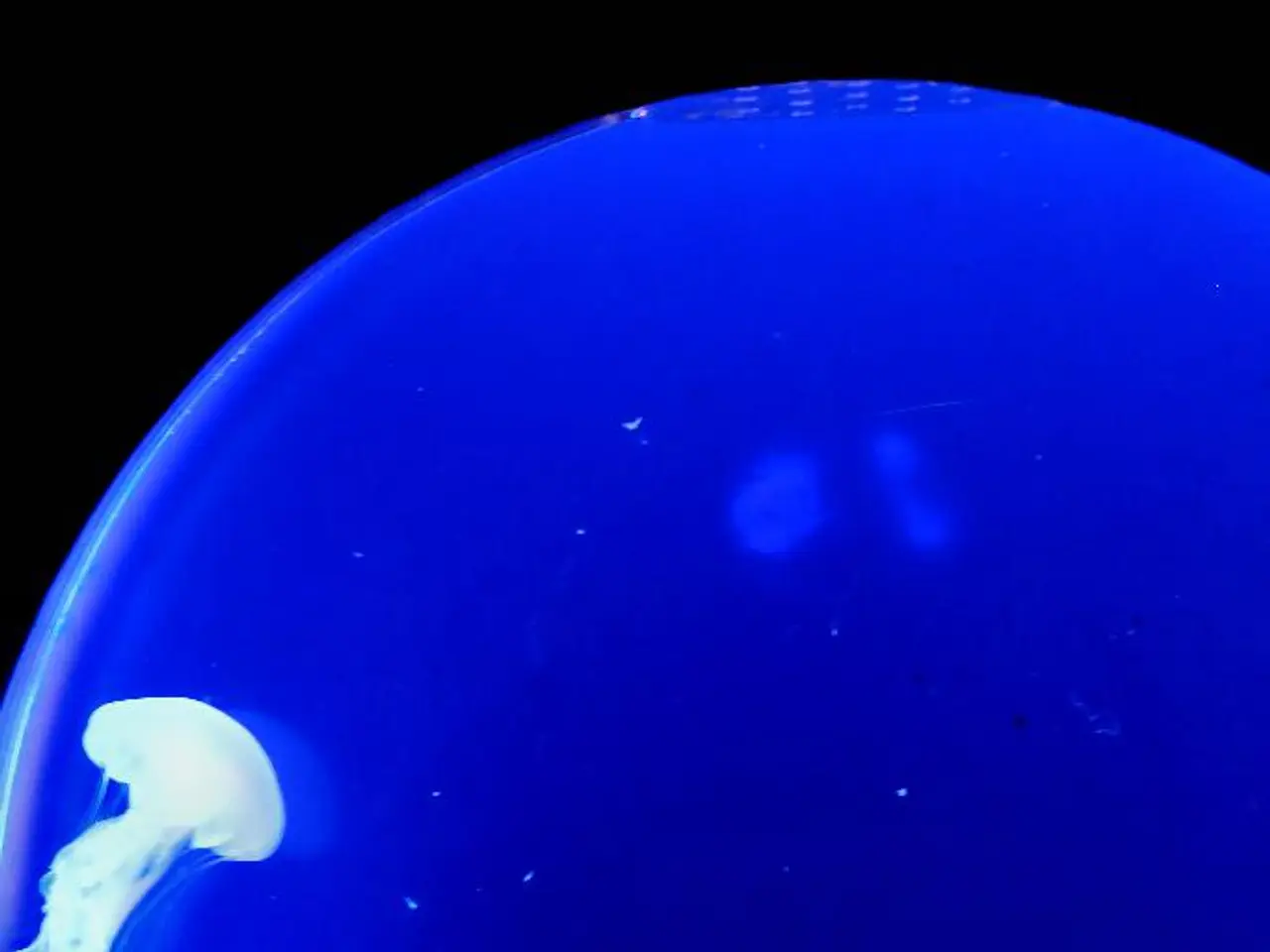Ancient Japanese fossil findings suggest squids were thriving and dominant marine creatures during the time of dinosaurs
In a groundbreaking discovery, a team of palaeontologists has unveiled that squids were not just present but thriving in Earth's ancient seas, much earlier than previously thought. The recent study, published in the prestigious journal *Science*, employs a novel technique called grinding tomography, or "digital fossil mining", to examine fossils embedded deep within ancient rock formations from the Cretaceous period in Japan.
This high-resolution digital technique provides detailed, three-dimensional computer models of the fossils, allowing scientists to study the internal structures without causing further damage to the specimens. By applying this method, the researchers uncovered 263 fossilized squid beaks from 40 species across 23 genera and five families. These findings demonstrate that squids originated and rapidly diversified around 100 million years ago, challenging the conventional wisdom about the evolution of marine life.
The Cretaceous period, spanning 145-66 million years ago, was a time when Earth's oceans were teeming with giant marine reptiles, sharks, large predatory fish, and shelled cephalopods called ammonites. However, the new study suggests that squids were not only present but also extremely abundant and often larger than the ammonites and bony fishes they coexisted with. This indicates that squids thrived as the most abundant swimmers in ancient oceans for at least 30 million years before the rise of marine mammals and modern bony fishes.
The evolution and success of squids took place before the extinction event 66 million years ago, which marked the end of the "Age of Dinosaurs". This fundamentally changes our understanding of marine ecosystems, highlighting squids as pioneers of fast, intelligent swimming behaviour in ancient seas. The study also suggests that the shift from heavily shelled, slowly moving cephalopods to soft-bodied forms did not result from the end-Cretaceous mass extinction.
Cephalopods, which include squids and octopuses, first emerged approximately 500 million years ago. Today, squids are the most diverse and widely distributed marine cephalopods. In both number and size, these ancient squids clearly dominated the seas during the dinosaur age, challenging the notion that the modern-type marine ecosystem was established after the end of the Cretaceous period.
The discovery of a 164-million-year-old cephalopod named Vampyronassa rhodanicadiscovered in 2022 is thought to be an ancestor of modern vampire squids, but is not a true squid itself. Despite this, the study provides compelling evidence that squids were the pioneers of the modern-type marine ecosystem as intelligent, fast swimmers.
This new technique for studying fossils has not only revealed the early dominance of squids but also opened up a wealth of possibilities for further research into the evolution of marine life. As we continue to unravel the mysteries of our ancient oceans, it seems that squids are set to remain at the forefront of our understanding.
- The breakthrough in '*Science*' journal intimates that technology, specifically grinding tomography, revolutionizes the realm of environmental-science and education-and-self-development, offering a deeper insight into the interior structures of fossils without causing harm to the specimens.
- The discovery of thriving squids in Earth's ancient seas, beyond previous expectations, reveals a strand of the health-and-wellness of the planet's oceans during the Cretaceous period, a time teeming with life forms like marine reptiles, sharks, and ammonites.
- Fitness-and-exercise expert would be amazed to learn that the study indicates squids were not only present but often larger than their contemporaries, such as ammonites and bony fishes, suggesting a strong, robust aquatic presence for these cephalopods in ancient times.
- The lifestyle and sports industry may take interest in the findings of the study, as it substantiates the theory that squids were the pioneers of fast, intelligent swimming behavior, leading the marine ecosystem long before the emergence of marine mammals and modern bony fishes, lending credence to their place as forerunners in the evolution of marine life.




